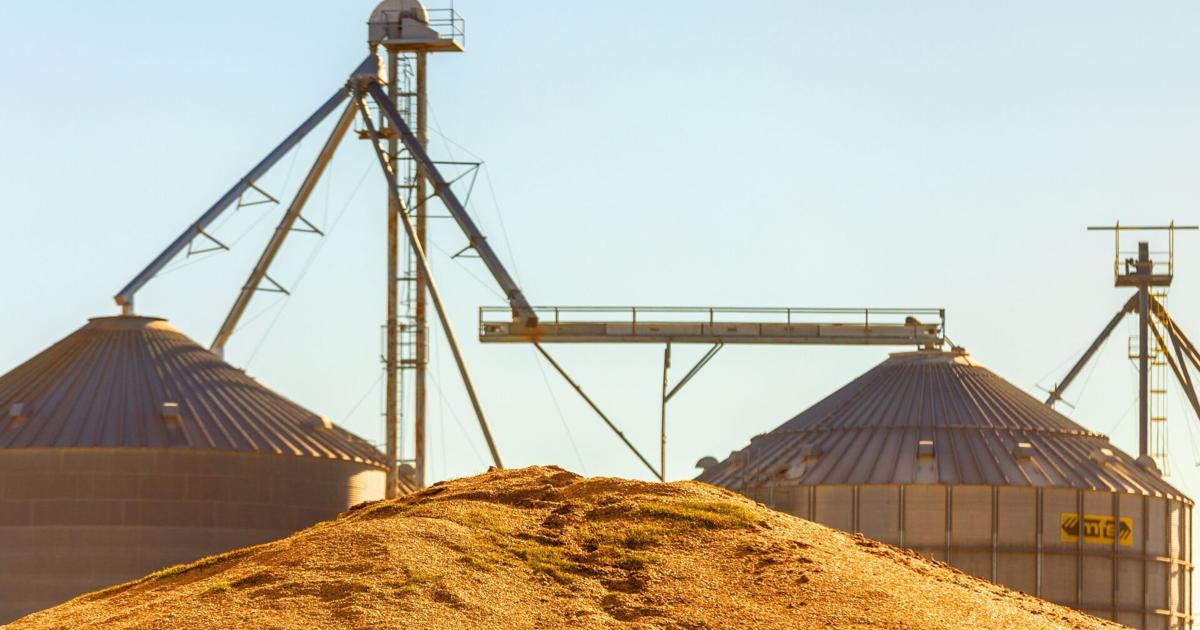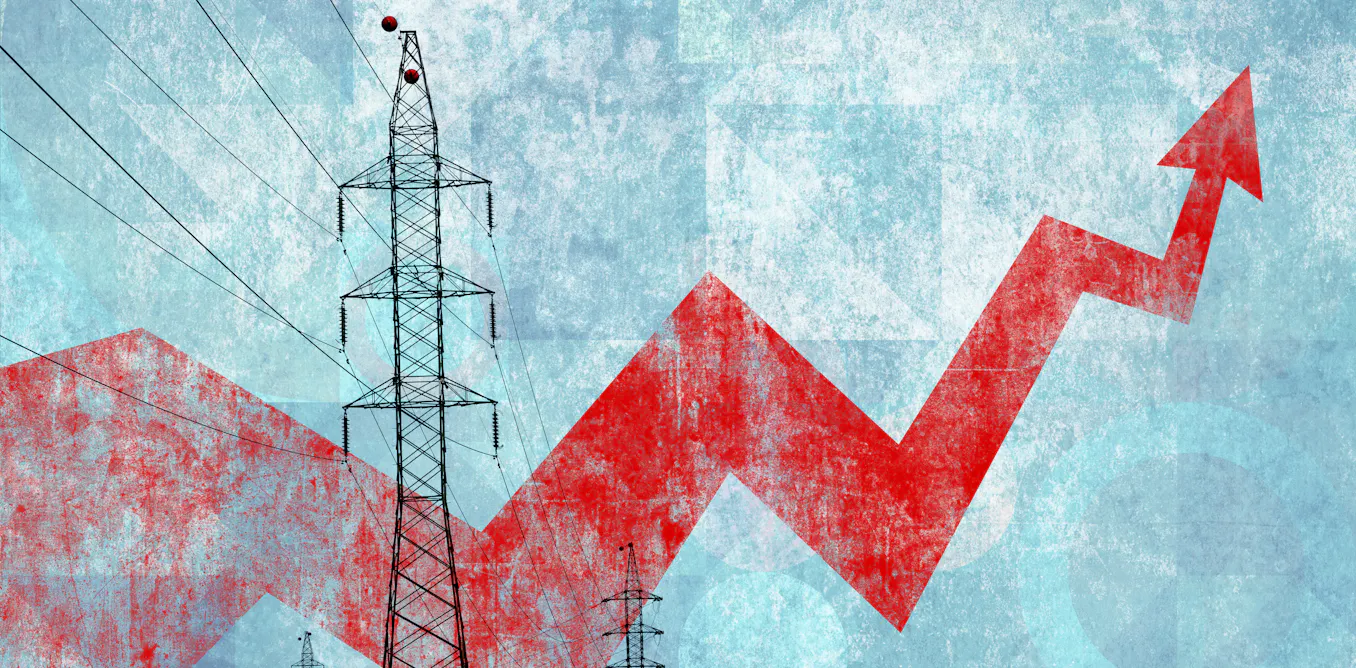
Nebraska’s rural economy is sputtering, with tariff-related uncertainty compounding challenges that farmers have faced for several years.
That’s the picture painted this week by the September report from the Rural Mainstreet Index (RMI), a survey of rural bank CEOs compiled by Creighton University economist Ernie Goss.
The monthly survey gathers the perspectives of rural bank CEOs in 10 states whose economies are dependent in part on agriculture or energy.
The RMI produces a reading from 0 to 100, with scores over 50 representing economic growth. The overall 10-state reading dropped from 48.1 in August to 38.5 in September. The Nebraska reading dropped from 43.2 in August to 38.5 in September.
September was the seventh month so far in 2025 where the overall number fell below the “growth-neutral” threshold of 50.
The gloomy regional picture is not new this year. The overall reading in September 2024 was an anemic 37.5.
Economic performance in the region was strong in 2022 but has declined every year since then and is on track to decline again in 2025 as corn and soy bean prices remain low and farm equipment sales remain “very weak.”
Agricultural commodity prices have been “dragging, dragging, dragging,” Goss told The World-Herald on Friday. “And when we ask the banks about that, what’s the chief impediment to growth in the rural areas, they come back every time … the chief impediment is commodity prices.”
“What the farmers are doing is going and relying on used equipment,” he added. “Relying on repairs to current equipment, and replacement of parts on current equipment.”
Goss said he thinks tariffs are having a “moderate” impact on the rural economy, adding to farmers’ anxiety against a backdrop when they’ve already been struggling.
“It was weak last year at the time as well,” Goss said. “The problem is this time there’s the uncertainty, more uncertainty than you had last year. The uncertainty stems from the president’s tariffs.”
Goss said U.S.-China relations have been a cause of uncertainty for agriculture.
President Donald Trump and Chinese leader Xi Jingping have been negotiating a deal that would transfer ownership of TikTok away from ByteDance, a company with close ties to the Chinese government.
Listen now and subscribe: Apple Podcasts | Google Podcasts | Spotify | Stitcher | RSS Feed | SoundStack | All Of Our Podcasts
“He negotiated the deal with TikTok, I guess, but that probably doesn’t help agriculture,” Goss said. “We’ll have to wait and see.”
Farmers’ reluctance to buy new equipment continues to show up in regional economic data, with rural bank executives seeing tariffs weighing significantly on farmers’ plans.
Almost 75% of bankers surveyed reported that tariffs are having a “modest negative” (46%) or “significant negative” (27%) impact on farming operations. Only 4% said tariffs were having a “modest positive” impact.
An overwhelming majority of bankers — 92% — said they think the U.S. economy is in a slowdown. Four percent said the economy is in an expansion, and the remaining 4% said it’s in a recession.
Republican lawmakers in agriculture-centric states have taken different approaches when discussing tariffs’ impact on farmers and ranchers.
Sens. Pete Ricketts and Deb Fischer of Nebraska have repeatedly defended the administration’s approach, saying that Trump is trying to “level the playing field” with trading partners.
Ricketts, however, has talked in recent weeks about wanting the administration to wrap up its trade negotiations soon.
Asked by The World-Herald during his weekly media conference call how he’d assess the state of the economy in Nebraska, Ricketts said there’s “some uncertainty in the economy right now.”
“I think generally, the economy is very strong,” he said. “Certainly, the farm economy in Nebraska is not, and so that is creating some issues for us in Nebraska.”
Ricketts said he sees a lot of things going right in the economy.
“But I think we need, for example to get these trade deals wrapped up, let the benefits of the One Big Beautiful Bill start taking effect, and we should see the economy really start getting much stronger.”
Sen. Chuck Grassley of Iowa has taken a much harsher tone, telling a rural TV network earlier this month that the Trump tariffs are a “stupid policy.”
“We’ve got this farm crisis now, and this President should deal with this farm crisis right now,” Grassley told RFD-TV. “I’m hearing from bankers. I’m hearing from people that are getting pressed by their bankers to maybe sell part of their farm to somebody, (so) that when they build up their equity, they might be able to buy it back. We haven’t had this kind of stress in agriculture since the 1980s.”
“Putting 50 percent tariffs on things that have steel in them, when you can’t buy those things in the United States, and you need them for your tractor to be finally manufactured?” Grassley added. “There should be tariffs on things that you can’t get in the United States. Why drive up the price of John Deere’s because of a tariff on something they need for the tractor that they can’t even get in the United States? It’s a stupid policy.”
The business news you need
Get the latest local business news delivered FREE to your inbox weekly.
* I understand and agree that registration on or use of this site constitutes agreement to its user agreement and privacy policy.
Ben Doody
Get email notifications on {{subject}} daily!
Your notification has been saved.
There was a problem saving your notification.
{{description}}
Email notifications are only sent once a day, and only if there are new matching items.
Followed notifications
Please log in to use this feature
Log In
Don’t have an account? Sign Up Today



